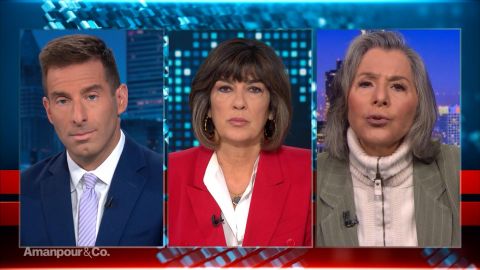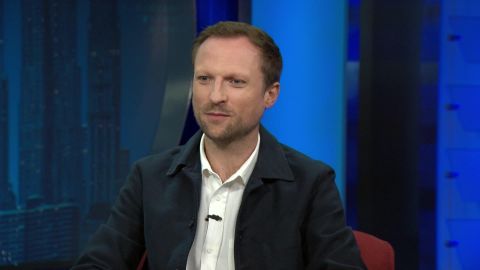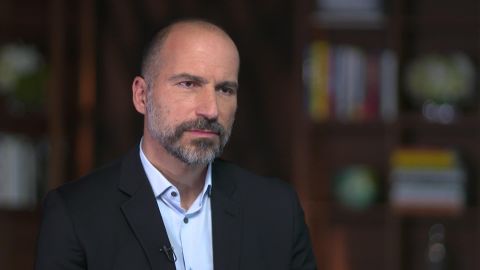Read Transcript EXPAND
CHRISTIANE AMANPOUR: So, there are new suggestions and laws that have been put in, for instance, in California. Let’s take the whole gig economy which Uber personifies saying that your drivers, your employees, need to be treated like human beings, need to be treated like employees with all the attendant rights and regulations. I don’t think you — I think you oppose that, right?
DARA KHOSROWSHAHI, CEO, UBER: We oppose the law. We don’t oppose the idea. Let me be specific here. The traditional view of work, which is you have a full-time job and you only work for one company in your life, that idea is outdated, right. I think now work used to be about the company. You work at IBM, that’s your career, et cetera. We think would be should be about work. About what you want to do when you want to do it. And that’s the new way of work, which is independent work or so-called gig work. And we do think that just the society’s expectations have changed, we should change the nature of independent work. So, it should come with protections, it should come with health services, it should come with representation on your having a right to voice, et cetera. But shouldn’t that idea of being independent, having the power to say, I don’t want to work today, I don’t want to work the next day, I want to work tonight, during the day I want to go on a picnic, that should not be destroyed. And I think that the law, which we don’t think applies to us, this latest law, should —
AMANPOUR: You don’t think it applies to you?
KHOSROWSHAHI: Well, we think that we will pass under the test of the law, right. So, the law, of course, applies but we don’t think that the law, as it relates to us, would classify our drivers as full-time workers. But at the same time, we do think that the nature of independent work should change.
AMANPOUR: Because, you know, to follow up, California State senator, she said, let’s be clear, there’s nothing innovative about underpaying someone for their labor. I mean, you indicate that you agree with that but you want to — you don’t think the law applies to Uber in all its —
KHOSROWSHAHI: We don’t think — we think that 85, our workers are independent workers. OK. And —
AMANPOUR: But they have their own cars, they have to buy their own cars.
KHOSROWSHAHI: Of course, they do.
AMANPOUR: — they don’t get vacations. They don’t get health. They don’t get —
KHOSROWSHAHI: Listen, they get vacations because they can do whatever they want, right. So, they don’t — the traditional kind of, yes, I’ve got to get a vacation. I’ve got to ask the manager —
AMANPOUR: The health care and all the rest of it, insurance.
KHOSROWSHAHI: Well, that’s — exactly. So, we have offered all that up. We do believe that they should get health care. We do believe that they should have minimum earnings. And we want to have — we want them to have a voice. And we have come to the table with an offer to exactly reference the issues. Minimum pay, health care, the right to have a voice, and, by the way, they can take vacation whenever they want. So, we think this is the best of both worlds
About This Episode EXPAND
Christiane Amanpour discusses the Trump impeachment inquiry with Barbara Boxer and Elie Honig. Dara Khosrowshahi, CEO of Uber, explains why he is confident about the future of the company despite its loss of billions of dollars in the past three months. Director Orlando von Einsiedel sits down with Hari Sreenivasan to discuss his latest documentary “Evelyn.”
LEARN MORE


